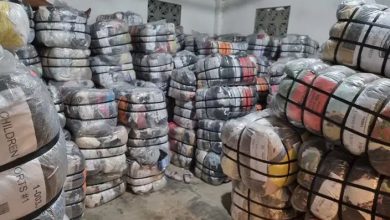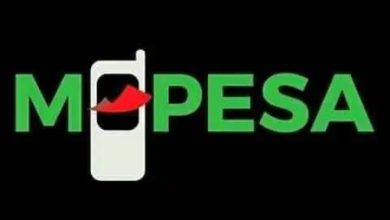Government Loans To Start A Business In Kenya
Are you looking for government loans to start a business in Kenya? And you want to know how you can apply? If Yes, then here in this article, you will find out the government loans available for starting a business in Kenya.
Government loans in Kenya are financial assistance programs provided by the government to support entrepreneurs in their quest to establish and expand businesses. These loans are part of the government’s broader efforts to promote entrepreneurship, drive economic development, and alleviate poverty by encouraging self-employment and job creation.
They are offered through various government agencies, including the Ministry of Industrialization, Trade, and Enterprise Development, the Kenya Industrial Estates (KIE), the Youth Enterprise Development Fund (YEDF), and the Women Enterprise Fund (WEF).
These loans catalyze economic growth by targeting individuals, especially young entrepreneurs, and women, who often face challenges accessing capital from traditional financial institutions due to stringent lending criteria, limited collateral, or insufficient credit history. The government recognizes the potential of these underrepresented groups to drive innovation, create employment, and contribute to the overall development of the nation’s economy.
The application process for government loans usually involves submitting a detailed business proposal, financial projections, and supporting documents to the relevant government agency. Additionally, applicants may be required to undergo interviews, credit assessments, and site visits to evaluate the feasibility and viability of their business plans. Successful applicants are then granted access to the loan funds, often at favorable interest rates and flexible repayment terms.
And also government loans play a vital role in empowering aspiring entrepreneurs to overcome financial barriers and launch their businesses. By providing access to affordable capital, these loans enable entrepreneurs to acquire essential resources, such as equipment, inventory, technology, and working capital, to establish and scale their ventures.
Furthermore, the loans also facilitate access to business training and mentorship programs, which enhance the knowledge and skills of entrepreneurs, thereby increasing their chances of success.
By supporting the growth of startups, these loans stimulate job creation, reduce unemployment rates, and contribute to local economic development. They also foster innovation, encourage entrepreneurship in untapped sectors, and promote regional economic balance.
What Government Loans Are Available For Starting A Business In Kenya?
The Kenyan government has implemented several loan programs to foster entrepreneurship and economic growth. Here are some of the prominent government loan schemes available for aspiring business owners:
1. Youth Enterprise Development Fund (YEDF): The YEDF targets young entrepreneurs aged between 18 and 35, providing them with affordable loans to kick-start their businesses. This program aims to address the challenges faced by youth in accessing capital and offers financial support, training, and mentorship.
2. Women Enterprise Fund (WEF): To empower women entrepreneurs, the Kenyan government introduced the Women Enterprise Fund. It provides accessible loans and capacity-building programs to enable women to establish and expand their businesses. This initiative encourages gender equality and promotes women’s economic independence.
3. Uwezo Fund: The Uwezo Fund focuses on supporting women, youth, and people with disabilities. It provides interest-free loans and capacity-building opportunities to marginalized individuals, empowering them to create sustainable businesses. This program aims to enhance inclusivity and economic empowerment within the country.
4. Micro and Small Enterprises Authority (MSEA) Fund: The MSEA Fund offers loans to micro and small enterprises in Kenya. It provides financial assistance, training, and market linkages to entrepreneurs, to strengthen and expand their businesses. This program supports various sectors and encourages entrepreneurship at the grassroots level.
How Can I Apply For A Government Loan To Start A Business In Kenya?
Applying for a government loan in Kenya requires thorough preparation and adherence to specific procedures. Here’s a step-by-step guide to help you navigate the application process successfully:
1. Research Loan Programs: Begin by researching the various loan programs available. Understand the eligibility criteria, loan amounts, interest rates, and repayment terms associated with each program. This knowledge will help you choose the most suitable loan scheme for your business needs.
2. Prepare Your Business Plan: Crafting a comprehensive business plan is crucial for loan application success. It demonstrates your understanding of the market, your business model, and your financial projections. Include details such as your business concept, target market, marketing strategies, and financial forecasts.
3. Gather Required Documents: To apply for a government loan, you will typically need documents such as your national identification card, business registration documents, bank statements, tax compliance certificate, and a copy of your business plan. Ensure you have all the necessary paperwork ready before proceeding.
4. Visit The Loan Provider: Once you have identified the loan program that aligns with your needs and prepared all the required documents, Next is to visit the relevant loan provider’s office or website. Seek guidance from their representatives and familiarize yourself with the application process specific to that program.
5. Complete The Application Form: Fill out the loan application form accurately and provide all the necessary information. Double-check for any errors or omissions before submitting the form. In some cases, you may be required to pay a non-refundable application fee.
6. Attend Interviews And Presentations: Depending on the loan program, you may be invited for an interview or asked to make a presentation about your business. Be prepared to articulate your vision, plans, and financial projections confidently.
7. Await Approval and Disbursement: After submitting your application, the loan provider will review your proposal, assess your eligibility, and evaluate the viability of your business venture. This process may take some time, so be patient. If your application is approved, you will be notified regarding the loan amount, interest rates, repayment terms, and any other conditions.
Once you receive the approval, you will need to fulfill any additional requirements, such as signing loan agreements and providing any requested collateral. It’s essential to thoroughly understand the terms and conditions before proceeding with the disbursement of funds.
Are There Any Collateral Requirements For Government Loans For Starting A Business In Kenya?
Collateral requirements vary depending on the loan program and the loan amount you are seeking. Some government loans may require collateral, while others may provide loans without the need for collateral or with alternative forms of security. Here are a few examples:
1. Group-Based Collateral: Certain loan programs, such as the Women Enterprise Fund and Uwezo Fund, offer group-based lending where individuals within a registered group act as joint guarantors. In such cases, the group as a whole assumes the responsibility of repayment, minimizing the need for individual collateral.
2. Asset-Based Collateral: For loans that require collateral, you may need to pledge assets such as land, vehicles, or other valuable property. The loan provider will evaluate the value of the assets and their marketability before accepting them as collateral. It’s crucial to assess the risks and consider the potential implications of using collateral for securing the loan.
3. Guarantors: In some instances, loan programs may allow the use of guarantors in place of collateral. Guarantors are individuals who commit to repay the loan in case the borrower defaults. The guarantors’ financial stability and credibility play a significant role in loan approval.
It’s important to note that not all government loan programs require collateral, especially those designed to support marginalized groups and promote inclusivity. It is advisable to thoroughly research the specific loan program you are interested in to determine the collateral requirements, if any.
What Is The Maximum Amount Of Money I Can Get From Government Loan In Kenya?
The maximum loan amount you can obtain from a government loan in Kenya can vary depending on the loan program and your business needs. Different loan schemes have different upper limits, and the loan amount may also be influenced by factors such as your business plan, repayment capacity, and collateral availability. Here is a given example:
1. Youth Enterprise Development Fund (YEDF): YEDF offers loans ranging from Ksh 10,000 to Ksh 5 million. The loan amount you can secure depends on the viability of your business proposal, your repayment capacity, and other factors assessed during the application process.
2. Women Enterprise Fund (WEF): WEF provides loans starting from Ksh 10,000 up to Ksh 2 million. The loan amount you are eligible for will be determined based on your business plan, financial projections, and the viability of your proposed venture.
3. Uwezo Fund: The Uwezo Fund offers loans starting from Ksh 50,000 to Ksh 5 million. The loan amount you can access depends on factors such as the size and nature of your business, your repayment capacity, and the assessment of the loan provider.
4. Micro and Small Enterprises Authority (MSEA) Fund: MSEA Fund provides loans ranging from Ksh 50,000 up to Ksh 5 million. The loan amount you can obtain will be evaluated based on your business plan, financial projections, and the assessment of the loan provider.
It’s essential to carefully assess your business needs and financial requirements to determine the appropriate loan amount for your specific situation. Requesting a loan amount that aligns with your business needs and repayment capacity will increase the possibility of loan approval and ensure that you can effectively manage the funds for your business growth.
What Are The Terms And Conditions For Government Loans In Kenya?
Government loans in Kenya come with specific terms and conditions that borrowers must adhere to. These conditions are designed to ensure the responsible use of funds and timely repayment. While the exact terms may vary depending on the loan program, here are some common aspects to consider:
1. Interest Rates: Government loans often offer competitive interest rates, which are typically lower compared to commercial loans. The interest rates may be fixed or variable, depending on the loan program and prevailing market conditions. It’s crucial to understand the interest rate structure and factor it into your financial projections and repayment plans.
2. Repayment Period: The repayment period for government loans varies depending on the loan program and the loan amount. It can range from a few months to several years. Longer repayment periods may be available for larger loan amounts.
It’s essential to consider the repayment period and ensure that your cash flow projections align with the repayment obligations.
3. Grace Period: Some government loans may provide a grace period before the repayment begins. During this period, you may not be required to make any principal or interest payments. This grace period allows you to focus on establishing and stabilizing your business before commencing loan repayment.
The duration of the grace period varies and should be considered when planning your finances.
4. Loan Security And Collateral: Certain government loans may require collateral or alternative forms of security. It’s essential to understand the collateral requirements and carefully evaluate the risks and implications of using collateral for securing the loan.
However, be sure to assess your ability to provide the necessary collateral and the potential impact on your business in case of default.
5. Loan Monitoring And Reporting: Government loans are subject to monitoring and reporting requirements. Borrowers may be required to submit periodic reports, including financial statements, progress updates, and business performance indicators.
Compliance with these reporting obligations is crucial to maintain a good relationship with the loan provider and ensure continued access to funding.
6. Compliance With Loan Purpose: Government loans are typically granted for specific business purposes outlined in your business plan. It’s important to use the loan funds solely for the intended purposes and maintain accurate records of expenditure.
Deviating from the agreed-upon loan purpose may result in penalties or even loan default.
7. Early Repayment And Penalty: Some government loan programs encourage early repayment by offering incentives such as reduced interest rates or waivers. However, it’s essential to review the terms and conditions regarding early repayment, as some programs may impose penalties or charges for prepayment.
Consider your cash flow situation and evaluate the feasibility of early repayment options.









